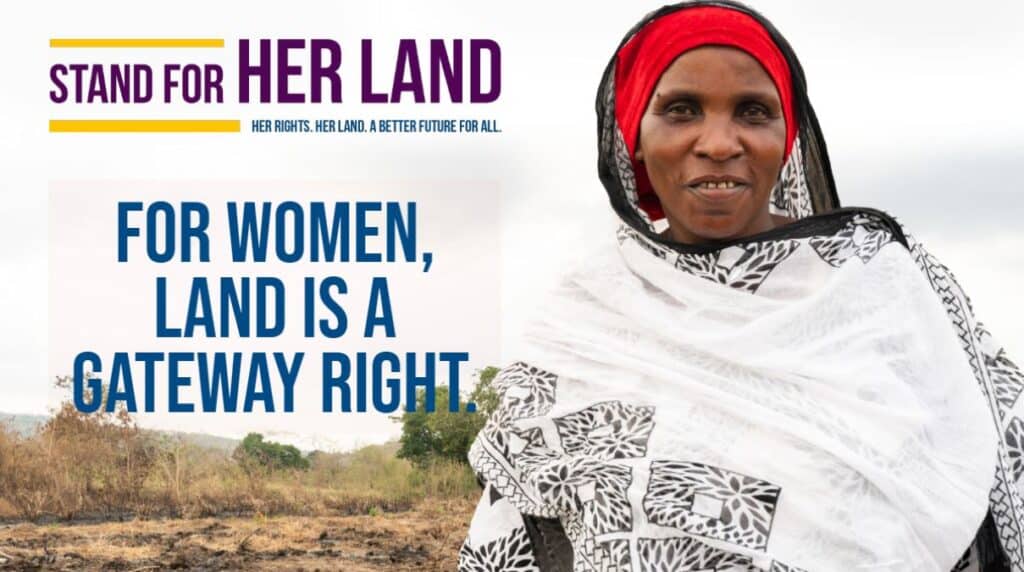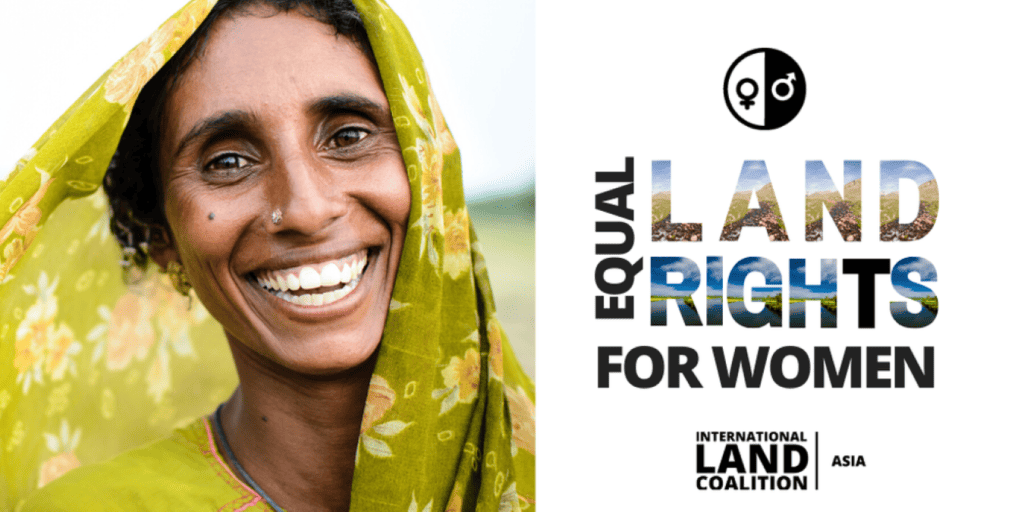
Women's Land Rights Take Center Stage on World Day to Combat Desertification & Drought 2023 (Photo Source: World Bank)
Women play a crucial role in land stewardship, yet they often find themselves without control over it. Across the globe, women face significant barriers in attaining land rights, hindering their ability to thrive and prosper. When land degradation occurs and water becomes scarce, women bear the brunt of the consequences.
It is imperative to invest in women’s equal access to land and associated resources as it directly impacts their future and the future of humanity. The time has come for women and girls to lead the charge in global land restoration and drought resilience efforts.

The focal point for the 2023 Desertification and Drought Day is women’s land rights, which are crucial for achieving interconnected global goals on gender equality and land degradation neutrality by 2030. Furthermore, this focus contributes to the advancement of several other Sustainable Development Goals (SDGs).
The United Nations Convention to Combat Desertification (UNCCD) reaffirms its commitment to gender equality through the objectives set for Desertification and Drought Day 2023:
- Raise awareness about the disproportionate impact of desertification, land degradation, and drought on women and girls, along with the barriers they face in decision-making regarding land issues.
- Highlight women’s contributions to sustainable land management and broader SDGs.
- Mobilize global support to advance land rights for women and girls worldwide.
The global observance of Desertification and Drought Day 2023 will take place at the United Nations Headquarters in New York, accompanied by events held across the globe.
According to the UNCCD’s landmark study titled “The Differentiated Impacts of Desertification, Land Degradation, and Drought on Women and Men,” gender equality remains an unresolved issue worldwide. Consider the following statistics:
- Nearly half of the global agricultural workforce comprises women, yet less than one in five landholders worldwide are women.
- Women’s rights to inherit their husband’s property continue to be denied in over 100 countries due to customary, religious, or traditional laws and practices.
- Globally, women spend a collective 200 million hours every day collecting water, with some countries requiring over an hour per trip.

The UNCCD has consistently emphasized gender equality as a vital catalyst for progress, incorporating it into its core mandate. In 2017, the Convention adopted the Gender Action Plan, recognizing the specific role of women in land restoration and sustainable land management. Additionally, it highlighted the importance of gender equality as a guiding principle in achieving the Convention’s objectives.
In collaboration with partners, high-profile personalities, and influencers, the UNCCD is launching the global campaign #HerLand. This campaign aims to acknowledge excellence, leadership, and efforts in sustainable land management by women and girls. It seeks to amplify the voices of those residing on the frontlines of desertification, land degradation, and drought, while mobilizing global support to advance land rights for women and girls worldwide.
Everyone can contribute to this cause:
- Governments can promote laws, policies, and practices that end discrimination and secure women’s rights to land and resources.
- Businesses can prioritize women and girls in their investments, facilitating access to finance and technology.
- Individuals can support women-led initiatives that restore land and help spread the message by using the hashtag #HerLand.
Key Messages:
- Desertification, land degradation, and drought disproportionately impact women and girls, as they often lack access to and control over land resources. They suffer the most from reduced agricultural yields and increased water scarcity.
- In the majority of countries, women have limited and unequal access to land. Discriminatory laws and practices impede their right to inherit and restrict their access to services and resources in many regions.
- When women are empowered, entire families and communities benefit. Not only are women on the frontlines of land degradation and climate change impacts, but they can also lead global efforts to restore land and enhance drought resilience. Gender-responsive land restoration is a pathway to reduce poverty, hunger, and malnutrition.
- Investing in women’s equal access to land and associated assets is a direct investment in their future and the future of humanity. Ensuring women’s land rights can help advance global gender equality and land restoration goals while contributing to the achievement of broader Sustainable Development Goals.
Empowering Women, Restoring Lands: Together for a Sustainable Future!





